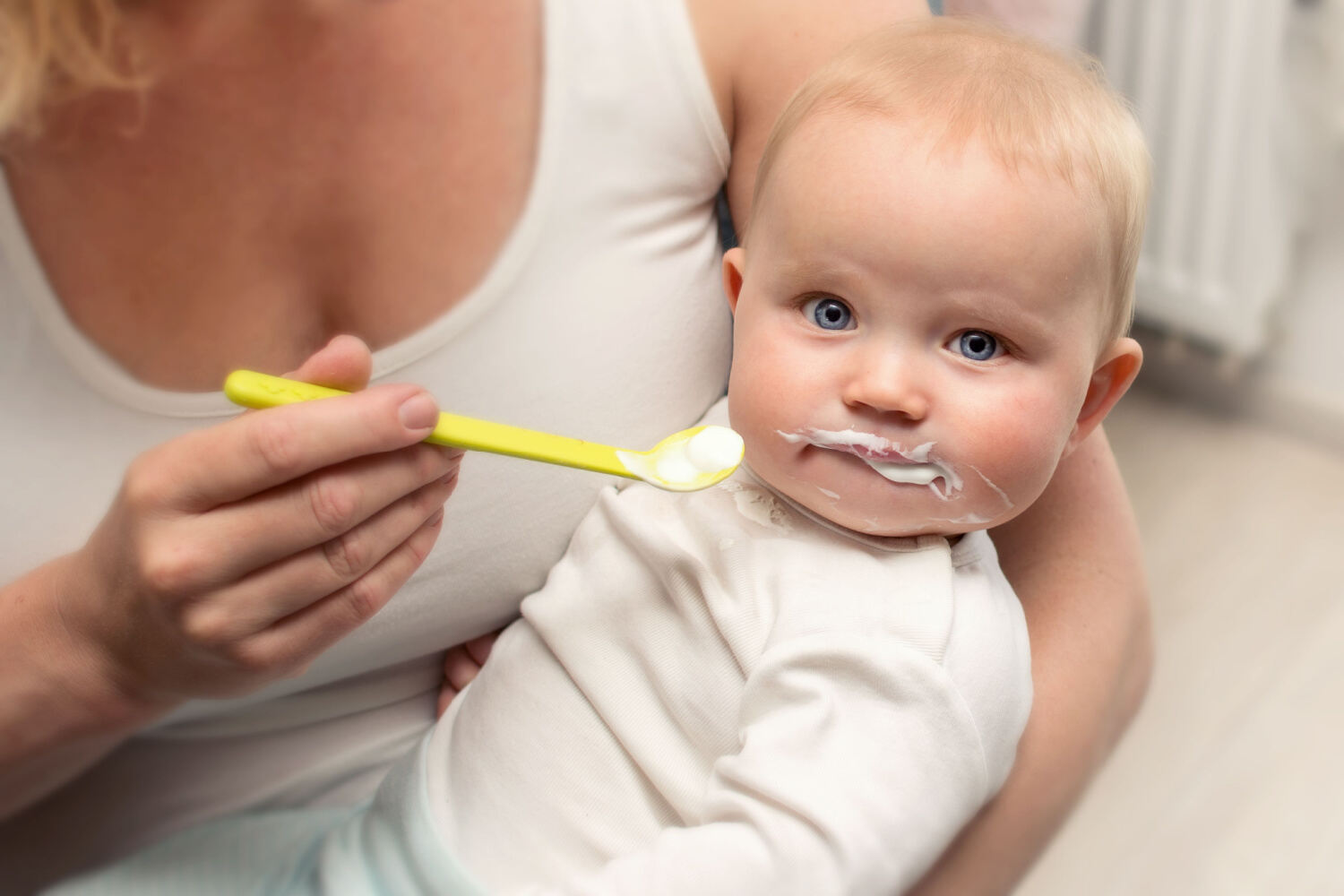
Parents place a premium on their babies’ health and happiness because of the joy they provide to their lives. Many parents worry about their newborns’ immune and digestive systems since they are still developing. Probiotics are becoming increasingly popular as a possible way to help a baby’s developing immune system. Because of their capacity to improve digestive health, probiotics, occasionally called “good” microorganisms, have gained considerable esteem. Because of this, it can have a big effect on health in general. This article will talk about the main points of probiotics for babies.
Many parents wonder about when to start including these probiotics in their baby’s food and the advantages they may expect to see. We’ll talk about these aspects, the risks involved, and whether or not probiotics are a good alternative for infants with lactose intolerance or milk allergies, too. Finally, we will talk about some common worries about how probiotics might affect babies’ gas and colic.
In This Article
- What Are Probiotics?
- Sources Of Probiotics For Babies
- When Can Babies Have Probiotics?
- Top 5 Benefits Of Probiotics For Babies
- Are There Any Side Effects Of Probiotics For Babies?
- Can Babies With Lactose Intolerance And Milk Allergy Have Probiotics?
- FAQ’s
What Are Probiotics?
Before discussing probiotics for babies, it is crucial to understand these bacteria. When taken in the proper doses, these “good” or “friendly” bacteria, known as probiotics, have been shown to improve health in several ways. These good bacteria are very common in the intestinal system and are necessary for good digestive health.
The probiotic strains Bifidobacterium and Lactobacillus are the most prevalent. These help the body digest food and stop dangerous microorganisms from growing in the gut.
Sources Of Probiotics For Babies

Probiotics may be beneficial for babies but what are the most common sources of these good bacteria. Here is the list of some of the sources of probiotics for babies.
1. Breast Milk
Breast milk is an infant’s initial source of probiotics since it includes naturally occurring beneficial bacteria. The mother’s gut health can influence the makeup of these bacteria; thus, nursing moms need to eat well.
2. Formula With Added Probiotics
Some kinds of baby formula now include probiotics. Babies who drink formula can benefit from ingesting these specially formulated foods.
3. Yogurt
Yogurt is a great first food for babies once they are ready to start eating solids. Live cultures found in dairy products are a great source of probiotics. Ensure the yogurt you give your infant is plain, sugar-free, and additive-free.
4. Probiotic Drops
Infants may benefit from probiotic drops, which pediatricians often recommend. You can add these drops to the baby’s milk or give it to them orally. But these must be given to babies only after due consultation with the doctors.
5. Foods
Fermented foods like idli and dosa are excellent source of nutrition and probiotics for babies. Giving these breakfast/snack foods to babies once they start solids can be beneficial in providing the probiotic intake they need.
When Can Babies Have Probiotics?
A newborn’s digestive tract is still very young and vulnerable; as a result, probiotics are not often considered until at least the one-month mark. Breast milk and formula milk are good sources of probiotics and hence you can hold off on giving probiotic supplements till your baby is at least six months old and has started with solids.
In some cases, when babies get sick with viral gastroenteritis and other gut-related illnesses, pediatricians may recommend probiotic supplements. In any case, it is always good to talk to your doctor and get their go-ahead before starting prebiotics for your little one.
Top 5 Benefits Of Probiotics For Babies

Babies may gain a lot from probiotics, the most important being a positive impact on their digestive health. The top five advantages are as follows:
1. Balancing Gut Microbiota
Establishing and maintaining a healthy gut microbiota largely depends on using probiotics. Maintaining this equilibrium is critical for effective digestion, nutrient absorption, and overall digestive health. It helps keep harmful bacteria from taking over, which makes for a more robust digestive system.
2. Reducing Diarrhea
In newborns, probiotics may be very helpful in lowering both the length and severity of diarrhea. It is especially true when illnesses or antibiotics have a role in the problem. Probiotics aid with digestion by reestablishing an average bacterial balance in the stomach.
3. Preventing And Alleviating Colic
Some studies have shown that probiotics can alleviate newborn colic symptoms; nevertheless, additional investigation is necessary. Although the exact methods by which probiotics mitigate colic are not yet known, it is speculated that they do so by improving the state of the gastrointestinal tract.
4. Enhancing Immunity
By encouraging the expansion of good bacteria, probiotics help to maintain a healthy immune system. A healthy gut flora makes babies with a robust immune system less likely to get sick.
5. Easing Constipation
Constipation is common in infants, but probiotics can help regulate bowel motions and relieve the discomfort. Helpful in the early stages of a baby’s life, they function by softening feces and encouraging regular, pleasant bowel movements.
Are There Any Side Effects Of Probiotics For Babies?

Probiotics have many potential health advantages but also a few potential side effects and consequences for babies. Some possible adverse reactions are as follows.
1. Infection Risks
In rare cases, certain probiotic types can cause illness, especially in infants with compromised immune systems. If your infant has a preexisting ailment, you should discuss probiotic use with your doctor before beginning.
2. Allergic Reactions
Some infants may be allergic to a probiotic supplement or a food ingredient. Keep an eye out for symptoms of allergies, including hives, rashes, and trouble breathing.
3. Digestive Disturbances
When given to infants at too early of an age or in excessive doses, probiotics can cause gas, bloating, and diarrhea.
4. Unproven Benefits
Probiotics are currently being researched for their potential advantages in treating disorders like colic. As a result, it’s possible that probiotics’ claimed ability to improve the health of infants is overstated.
Can Babies With Lactose Intolerance And Milk Allergy Have Probiotics?
Milk allergies and lactose intolerance are significant causes of parental anxiety. Babies with lactose intolerance have trouble digesting lactose, a substance contained in milk.
On the other hand, milk proteins trigger an allergic reaction in babies who suffer from milk allergies. Similar symptoms, including gastrointestinal distress, can be brought on by both illnesses.
Some probiotics may reduce symptoms of lactose intolerance in infants by improving lactose digestion. However, it’s essential to select probiotics cautiously and with the advice of a medical expert. Babies with a milk allergy should stay away from probiotics that come from dairy products. Choose probiotics that are suitable for your infant yet do not contain dairy.
By fostering a healthy gut, decreasing digestive difficulties, and boosting immunity, probiotics can provide considerable advantages for infants. However, they must be used cautiously and under the supervision of a medical expert. To guarantee the most significant potential outcome for your child’s health and well-being, you should consider the appropriateness of probiotics for infants with your doctor. Always monitor how your infant reacts to probiotics, and immediately inform your doctor if there are any negative side effects. If you want the best for your baby’s health, it’s necessary to approach the world of probiotics for babies with caution and awareness.
FAQ’s
1. Do Probiotics Help Baby Gas?
Promoting an appropriate balance of gut bacteria, like what probiotics do, may help minimize infant gas in some circumstances. Your physician can advise you on the best probiotic strains and quantities to take for gas relief.
2. Can Probiotics Reduce Colic?
Research on the possible link between probiotics and colic is underway. Although preliminary research suggests that certain probiotics may alleviate newborn colic symptoms, the data is not yet solid. It is essential to discuss the use of probiotics for colic with your baby’s physician to identify the most appropriate course of treatment.

